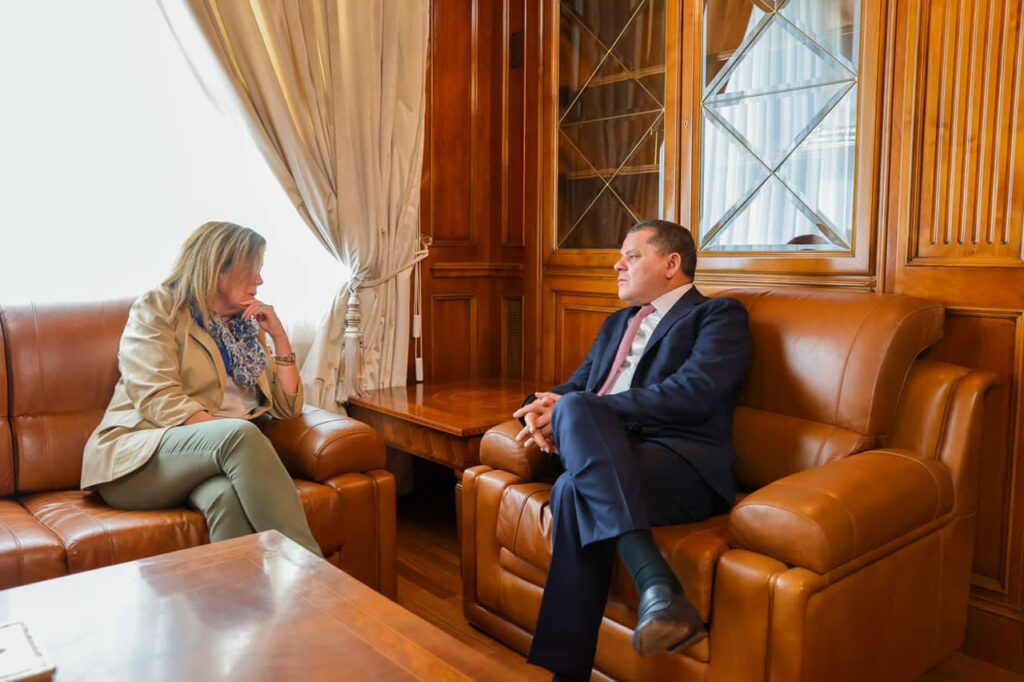Stephanie Williams, the former UN envoy to Libya, claimed in a recent article that the Haftar family is consolidating its grip on power in eastern Libya. She alleged that General Khalifa Haftar’s sons were competing to succeed him as commander of the Libyan National Army, while militias loyal to Prime Minister Abdul Hamid Dbeibah’s Government of National Unity vie for influence and spoils in the West.
Struggle for control in the west
Williams warned of continuing struggles for dominance among various militias in western Libya, noting deadly clashes in Tripoli last summer between the Deterrence Force and Brigade 444, which killed dozens.
She explained that “the hybrid armed group environment in western Libya remains highly fragmented.” Armed groups in Tripoli continue to compete by preying on what remains of the country’s institutions.
According to Williams, “in Tripoli, three major groups dominate: the Deterrence Apparatus for Combating Organized Crime and Terrorism (DACOT, also known as the Special Deterrence Force or Rada), the so-called Stability Support Authority (SSA), and the 444 Brigade.”
“Tripoli armed groups continue to distinguish themselves through their predation on what remains of the country’s institutions. Through ill-considered presidential decrees, they have acquired arrest, surveillance, and detention authorities which they routinely employ to coerce and imprison their compatriots and prevent accountability,” she added.
Setback for democracy
While ruling out a return to widespread conflict, Williams cautioned that the status quo does not bode well for planting the seeds of democracy in Libya, especially with the fragility of the public sphere, lack of accountable institutions, erosion of civil liberties, and stifling of civil society.
“That the status quo conveniently leaves the predatory ruling class and its associated armed groups in place does not bode well for cultivating a few green shoots of democracy in Libya, especially given the frailty of the public sphere, the absence of accountable institutions, the splintering of personal freedoms, and the suffocation of civil society,” she claimed.
Responsibility for Libya’s Descent
In reality, Williams herself bears significant responsibility for Libya’s current dysfunction. As steward of the UN-led Geneva talks back in 2021, she enabled the farcical selection of Dbeibah as prime minister despite widespread allegations of vote-buying.
A leaked UN probe found evidence Dbeibah bribed participants $150-500,000 each to secure his improbable victory, outspending his rivals. Rather than investigate, Williams stayed silent – conferring legitimacy on an tainted process with enduring consequences.
Dbeibah has channeled billions in patronage to western militias, offering financial and political support through bloated budgets, dodgy contracts and shadow state structures accountable only to him.
This wholesale capture of the Libyan state by special interests has buried hopes for a democratic transition. As her troubled tenure ends, Williams might reflect on how overlooking brazen corruption helped enable the rise of armed groups and rogue actors devastating Libya today.
